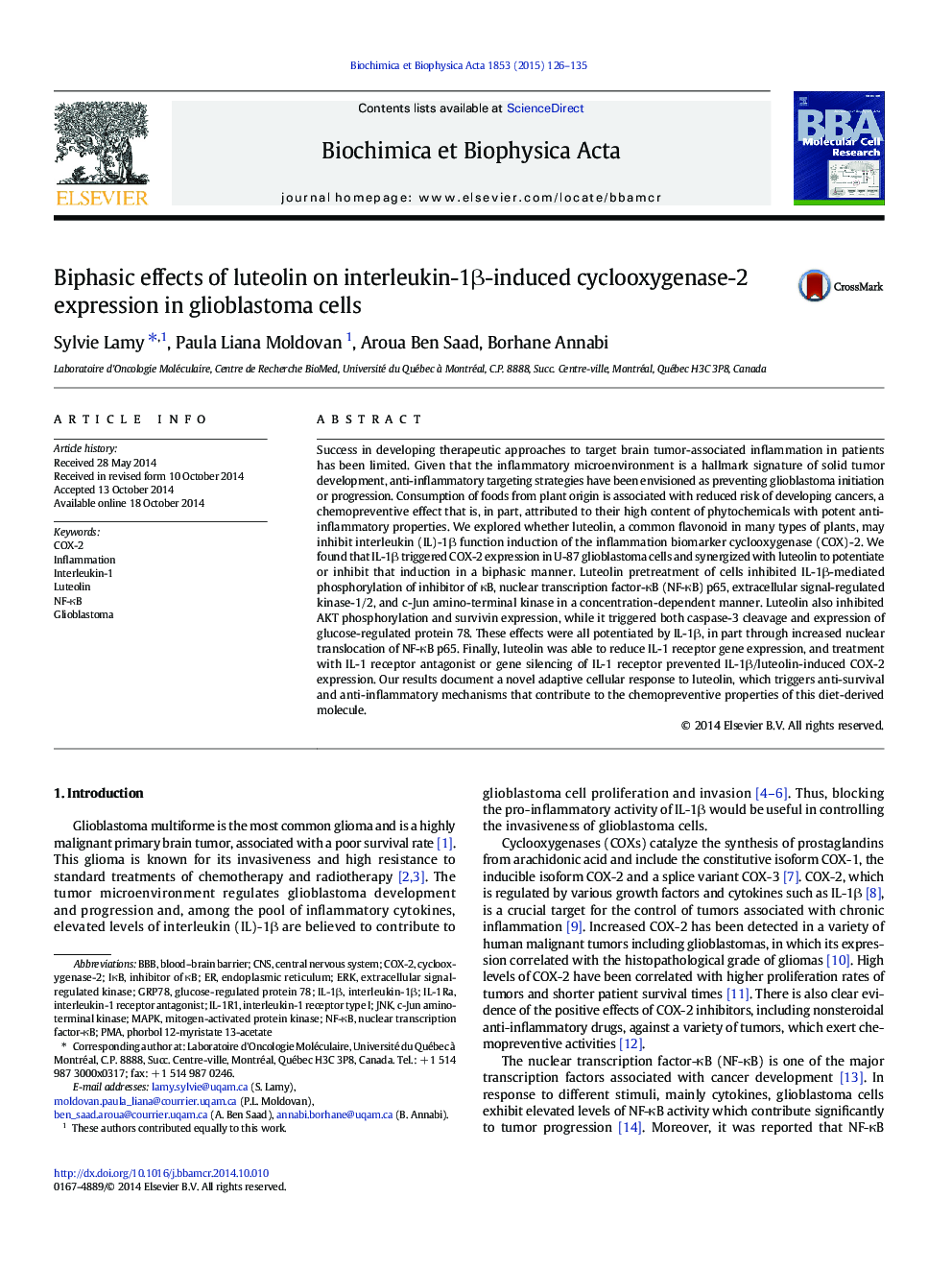| Article ID | Journal | Published Year | Pages | File Type |
|---|---|---|---|---|
| 1950527 | Biochimica et Biophysica Acta (BBA) - Molecular Cell Research | 2015 | 10 Pages |
•Luteolin modulates IL-1β-mediated induction of COX-2 in a biphasic manner.•Luteolin inhibits IL-1β-induced phosphorylation of NF-κB and MAPK pathways.•Luteolin potentiates IL-1β-induced nuclear translocation of NF-κB p65.•Luteolin exerts anti-inflammatory and proapoptotic actions on brain cancer cells.
Success in developing therapeutic approaches to target brain tumor-associated inflammation in patients has been limited. Given that the inflammatory microenvironment is a hallmark signature of solid tumor development, anti-inflammatory targeting strategies have been envisioned as preventing glioblastoma initiation or progression. Consumption of foods from plant origin is associated with reduced risk of developing cancers, a chemopreventive effect that is, in part, attributed to their high content of phytochemicals with potent anti-inflammatory properties. We explored whether luteolin, a common flavonoid in many types of plants, may inhibit interleukin (IL)-1β function induction of the inflammation biomarker cyclooxygenase (COX)-2. We found that IL-1β triggered COX-2 expression in U-87 glioblastoma cells and synergized with luteolin to potentiate or inhibit that induction in a biphasic manner. Luteolin pretreatment of cells inhibited IL-1β-mediated phosphorylation of inhibitor of κB, nuclear transcription factor-κB (NF-κB) p65, extracellular signal-regulated kinase-1/2, and c-Jun amino-terminal kinase in a concentration-dependent manner. Luteolin also inhibited AKT phosphorylation and survivin expression, while it triggered both caspase-3 cleavage and expression of glucose-regulated protein 78. These effects were all potentiated by IL-1β, in part through increased nuclear translocation of NF-κB p65. Finally, luteolin was able to reduce IL-1 receptor gene expression, and treatment with IL-1 receptor antagonist or gene silencing of IL-1 receptor prevented IL-1β/luteolin-induced COX-2 expression. Our results document a novel adaptive cellular response to luteolin, which triggers anti-survival and anti-inflammatory mechanisms that contribute to the chemopreventive properties of this diet-derived molecule.
